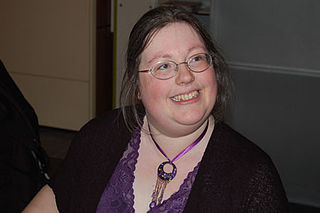A Quote by Gillian Cross
One of the fantastic things about books, fiction or non-fiction, is the way they give you a chance to look into different lives.
Related Quotes
Writing fiction is not a profession that leaves one well-disposed toward reading fiction. One starts out loving books and stories, and then one becomes jaded and increasingly hard to please. I read less and less fiction these days, finding the buzz and the joy I used to get from fiction in ever stranger works of non-fiction, or poetry.
I think it's important to humanize history; fiction can help us remember. A lot of books I've read in the past have been so much more important than textbooks - there is an emotional connection with one particular person. I'm very much of a research-is-important type of fiction writer, even for contemporary fiction. I wrote about blogs in America and I've never blogged. But I read many, many blogs - usually about feminist things, or about race, or about hair.
We sometimes drive ourselves crazy with how our books will be "seen," when in fact we already know what they're about, and where our obsessions are. If we can spin those obsessions into fiction, then there's a decent chance they will be "fiction-worthy," as you call it. The idea of the "sweep of ideas" is a complicated one.
I would say that most of my books are contemporary realistic fiction... a couple, maybe three, fall into the 'historic fiction' category. Science fiction is not a favorite genre of mine, though I have greatly enjoyed some of the work of Ursula LeGuin. I haven't read much science fiction so I don't know other sci-fi authors.
Creative non-fiction is such a liberating genre because it allows the non-fiction writer, whether he or she be journalist or essayist, to use all of the techniques of the fiction writer and all of the ideas, creative approaches, that fiction writers get a chance to use, but they have to use it in a true story.
All fiction, if it's successful, is going to appeal to the emotions. Emotion is really what fiction is all about. That's not to say fiction can't be thoughtful, or present some interesting or provocative ideas to make us think. But if you want to present an intellectual argument, nonfiction is a better tool. You can drive a nail with a shoe but a hammer is a better tool for that. But fiction is about emotional resonance, about making us feel things on a primal and visceral level.

































